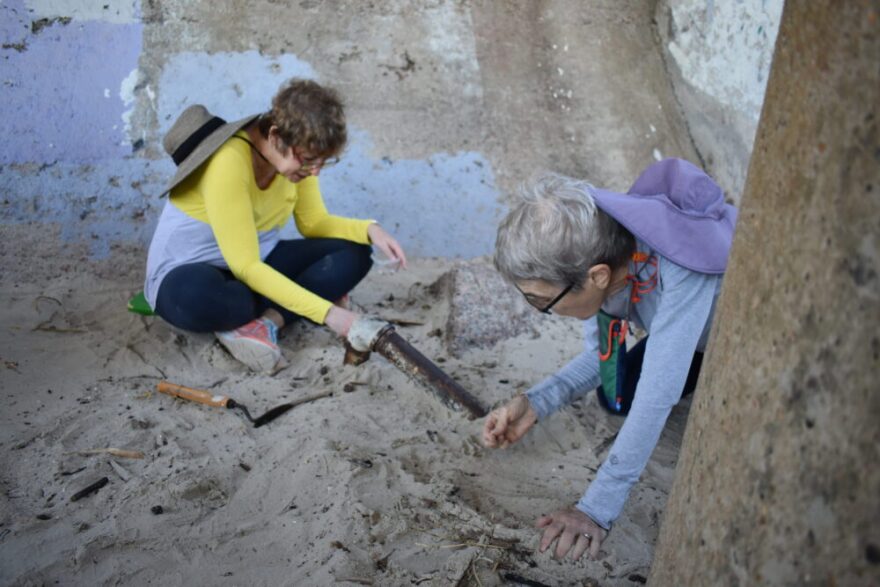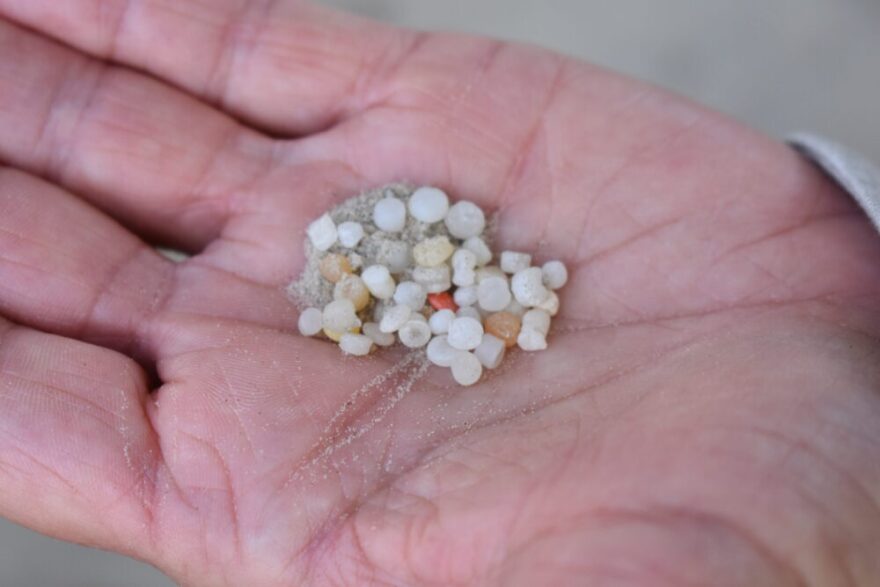
On Nov. 7, Laura Leavitt knelt on the Galveston shore beside her best friend, picking tiny bits of plastic out of the sand. The two friends were among around 20 other volunteers working piece by piece to help rid the beach of nurdles — small plastic pellets used to create plastic products such as soda bottles or cottage cheese containers.
"What we don’t take care of circles back to us, and I think just from picking up a piece of trash in your neighborhood, you’re contributing," Leavitt said.
The group of volunteers was part ofEnvironment Texasand theTurtle Island Restoration Network's Galveston cleanup. Along withcontinued nurdle beach cleanups, the groups also recently asked state leaders for more nurdle regulation since they said the pellets can be a threat to wildlife and people.
"We’re not asking for plastic production to be stopped. We’re asking for regulations to be in place to keep it safe for our environment,"Joanie Steinhaus, who is the ocean program director for theTurtle Island Restoration Network, said.
There are 36 facilities in Texas that produce nurdles, with three facilities along Galveston Bay,according to Turtle Island. Steinhaus said companies transport the microplastics to other facilities by truck or train in order to make the plastic products.
Steinhaus said since nurdles are lightweight,when they spill during manufacturing or transport, they escape into the environmentand eventually work their way onto Texas beaches.
On Nov. 7, volunteers collected 1,216 nurdles. Since 2020, Steinhaus said Turtle Island has collected over 16,000 nurdles on Galveston beaches, which she said is a concern for wildlife and humans since nurdles attach to toxins in the water.
"If you happen to eat fish that’s ingested nurdles, you’re not eating the plastic nurdles, but you could be eating the toxins that work their way into the flesh of the fish," Steinhaus said. "If there’s fertilizers or pesticides or chemicals, gas, oil that’s released out into the gulf and it attaches to these nurdles, then that’s not good for us to have in our bodies."

Steinhaus said environmental groups across Texas, along with charter boat captains and businesses, have called on Gov. Greg Abbott to direct theTexas Commission on Environmental Qualityto include nurdles in its updatedsurface water quality standards, a process that is expected to be finalized in 2026.
"That would give [the facilities] some regulations, some push if there’s a discharge, if there’s a train spill or a truck spill," Steinhaus said.
At itsOct. 23 meeting, the Galveston City Council unanimously passed a resolution calling upon the state to enact policies to protect the city from plastic pellets and other forms of pre-production plastic pollution.
Only one day before the beach cleanup, however, Abbott announced thatFormosa Plastics will open a new facilityin Jackson County, near the Matagorda Bay, located southwest of Galveston.
"Texas leads the nation in chemical production and exports," Abbott said in the news release. "This $150 million investment by Formosa Plastics will grow good-paying jobs for Texans, expand economic opportunity in Jackson County, and further our state's manufacturing leadership."
In 2017, a lawsuit was filed against Formosa Plastics, with claims that the company violated the Clean Water Act by discharging nurdles into the bay at its Point Comfort facility. The lawsuit was settled, and Formosa Plastics agreed to prevent the further discharge of plastics.
Steinhaus said she thought the announcement of a new facility was unfortunate, since it will add to the number of existing plastic-producing facilities.
"We don’t need more, we need less,” Steinhaus said. “We can’t recycle our way. We need to stop our consumption of plastic because there’s so much plastic in the world."
Abbott and Formosa Plastics did not respond to a request for comment on nurdle production regulations.
Copyright 2025 Houston Public Media News 88.7
